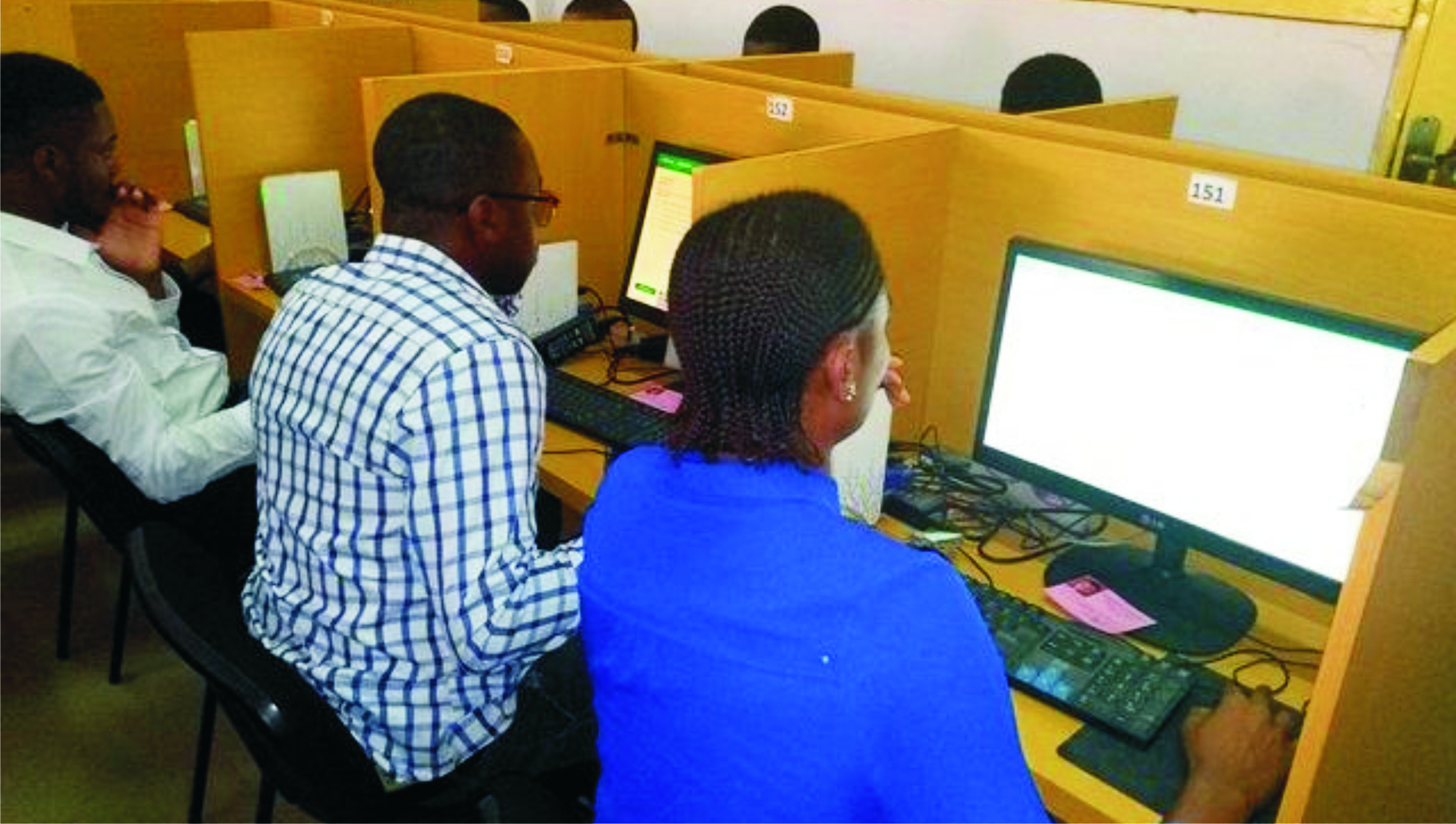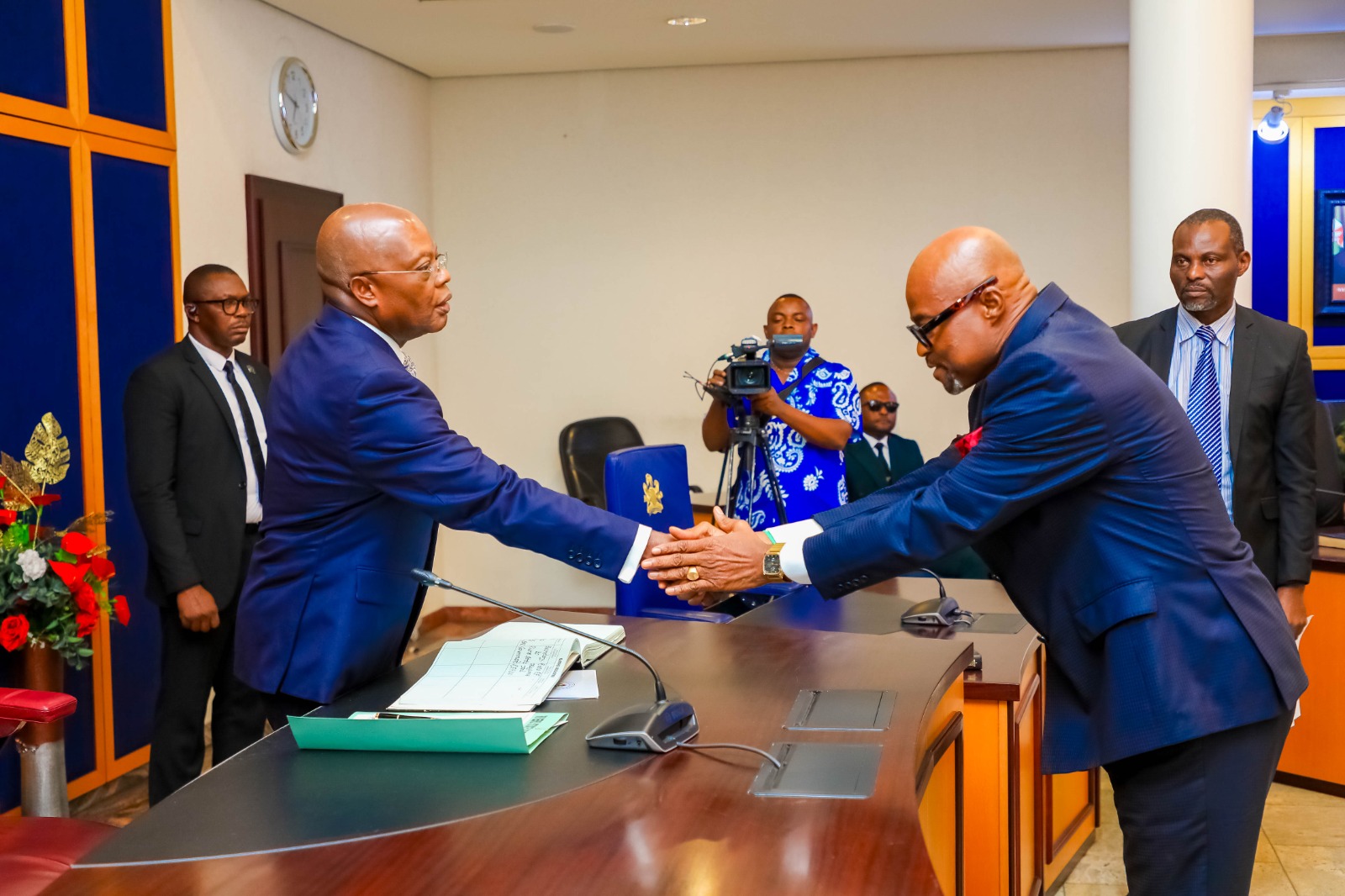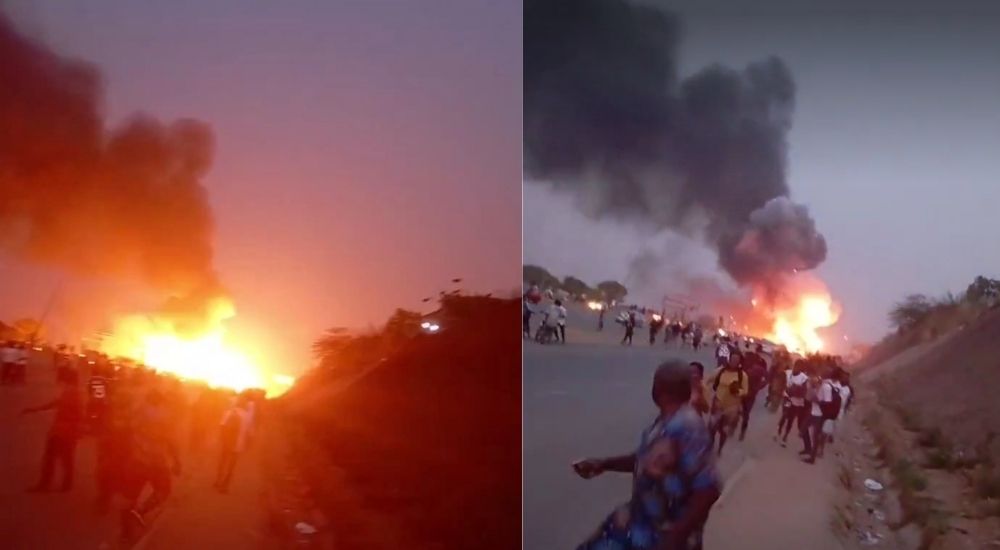Featured
Teachers’ Professional Code Of Conduct

After the publication of a previous article, Teachers’ Professional Exams (The Tide newspaper, Friday, October 18, 2019), a reader demanded to know if there is a professional code of practice for Nigerian teachers.
Although answers and directions were given to the inquirer, it is necessary to make the information available to the reading public. It is also necessary to say that Nigeria is not a reading society, culture of reading, including reading of newspapers.
Yes, a code of professional ethics exists for educators, including journalists too. For the professional teacher, better known as the educator, the code is drived from what is commonly known as the Learner-Centred doctrine, of which there are two parts, namely: commitment to the learner and commitment to the profession.
The educator’s roles include helping the learner to realise his potentials to an optional level, as a worthy and effective member of society.
This would include stimulating the culture of inquiry, the pursuit of knowledge not for the sake of money, but for a thoughtful formulation of worthy goals in life. The fulfilment of these noble roles and obligations to the learner demands the followings from the educator:
Giving the learner a free hand and independent action in the pursuit of knowledge; giving the learner access to various points of views and not deliberately suppressing or distorting the subject matter relevant to the learner’s progress; making all reasonable efforts to protect the learner from conditions harmful to learning or to health and safety, not intentionally exposing the learner to embarrassment or disparagement; avoidance of discrimination towards the learner based on race, colour, creed, sex, national origin, marital status, political or religious beliefs, social or cultural backgrounds or sexual orientations.
These would include not unfairly excluding any learner from participating in any program or deny benefits to any learner, by granting special advantage to any while denying same to another. Non-use of professional relationships with learners for private gains and non-disclosure of information obtained in the course of professional services, unless such disclosure serves compelling professional purposes or is required by law.
With regards to commitment to the profession, the educator is to uphold the ideal of public trust and responsibility, demanding the highest professional service. The quality of services of the profession which directly influences the learner, demands that the educator strives to raise the standard of education as well as provide a healthy climate for effective learning.
Professional conduct and judgment should be such that would attract people worthy of trust into the career of teaching.
In fulfilment of such obligations, the educator should not make false statements about his qualifications or competence in his application for a teaching job. Neither should he assist entry into the profession of a person known to be unqualified in respect of character, education or other attributes.
The professional educator should not disclose information about colleagues or students obtained in the course of professional services, unless such disclosure serves compelling professional purposes, or is required by law.
Vital in the professional code of conduct for the teacher is the requirement of not knowingly making any false or malicious statement about colleagues. Thus, the principle of collegiality does stipulate internal discipline among a work force, such that efficient team work can be enhanced.
Efficiency in teaching as a profession places emphasis on co-operation, motivation and commitment to service.
However, there has been a lingering controversy whether or not teaching is a career or a profession.
Establishment of Teachers Registration Council has the purpose of professionalising the career of teaching, demanding that teachers be registered. Apart from the initiative by the Federal Government of subjecting teachers to a professional examination, there is also a nationwide move that all those engaged in teaching, up to university level, should have some professional training in education.
What will follow the registration of professional teachers would be the licensing of professional educators.
Like in journalism, there are freelance practitioners in teaching jobs whose names are not in the Registers of the respective Councils. There are old, recognised and closed professions such as Law, Medicine, etc.
A layman would not perform surgery or defend an accused person in court, but anybody can write and teach without anyone asking for your licence to do so. Quite soon, there would be protective guilds and litigations on who does what and why. So far, charlatans can do a number of things and get away with their claims, but that may stop soon.
This is moreso because political gamblers, jobbers and gangsterists have done this country grievous and incalculable harms. Education is a noble profession which includes those who write, speak, etc, for the purpose of the masses. Politics, as an instrument of large-scale piloting of human affairs, cannot be a game of groups of gangsters who use money, shenanigans and brute force to control the fate of a nation.
A rebuilding and cleansing process which is an on-going global movement would root out charlatans, hustlers, gamblers and gangsters in every field of human endeavours. We shall be free from those who hold humanity hostage by force.
Bright Amirize
Featured
Bring Your Wealth Of Experience To Governance, Ibas Tasks New SSG

The Sole Administrator of Rivers State, Vice Admiral Ibok Ete Ekwe Ibas (rtd), has charged the new Secretary to the State Government (SSG), Prof Ibibia Lucky Worika to bring his wealth of experience to bear in governance of the State.
Vice Admiral Ibas (rtd) gave the charge shortly after swearing in the new SSG at the executive chambers of Government House on Wednesday night.
The Administrator who congratulated Prof Worika on his appointment said the choice was not merely an administrative decision but a statement of intent.
Vice Admiral Ibas (rtd) explained that the new SSG has an unparallel expertise in law, policy and international governance, which align perfectly with the mission to restore law, order, integrity and public trust in Rivers State.
He said: “To our new SSG, the task ahead is onerous, but your track record leaves no doubt in our minds that you will prove your mettle. Rivers State needs your intellect, grit and unweaving dedication. Together, we will write a new chapter of progress for this great state.
“Prof Worika’s role will be critical in driving this vision, ensuring that every policy, every decision and every action is in consonance with this administration’s mandate to restore law and order, stabilize the polity and to create the necessary conditions for the restoration of democratic institutions and representations.”
Vice Admiral Ibas (rtd) pointed to his maiden address to Rivers people wherein he emphasised that his administration will be committed to delivering an effective governance that is anchored on transparency, accountability and service.
He therefore, enjoined the new SSG to brace up to the demands of his office, and offer his best service as required while also working cooperatively with civil servants.
Vice Admiral Ibas (rtd) said: “You have no time to settle down. You must roll up your sleeves and get to work with the team.
“Our civil servants with whom we will work closely to run this administration are critical stakeholders and we must work with them to ensure that the state continues to function effectively during this administration.
“To the Permanent Secretaries and civil servants as a whole, once more I will ask your kind cooperation and support as we work to achieve our objectives at this time,” he added.
Featured
I Am One Of You, Sole Administrator Tells Rivers People …Warns Against Violence, Crude Oil Sabotage

The Sole Administrator of Rivers State, Retired Vice Admiral Ibok-Ete Ibas (rtd), has assured residents that he is not in the State as a partisan actor or political competitor but as a stabilising force to restore governance and order.
In a state broadcast yesterday, Ibas, who assumed duty at Government House, Port Harcourt, emphasised his commitment to protecting civil liberties and ensuring the safety of all citizens.
However, he issued a stern warning against crude oil sabotage and violence, urging residents to resist any temptation to return to past hostilities.
“For decades, I have dedicated my life to the service of our great nation—first as the 20th indigenous Chief of Naval Staff and later as Nigeria’s High Commissioner to Ghana. I answered this call out of the need for peace in Nigeria, and most importantly, in Rivers State,” Ibas stated.
Describing the prolonged political impasse as a major setback to governance and democracy, he acknowledged the hardships faced by families and businesses due to the prevailing uncertainty.
“As a son of the Niger Delta, I am one of you. I feel the weight of this crisis on families, businesses, and the future of our people,” he said.
Ibas commended President Bola Tinubu’s decisive action in declaring a state of emergency in Rivers State, stressing that it was a necessary move to restore stability and revive economic activities.
“My mandate is clear: restore law and order, ensure stability, and create an enabling environment for economic growth. But this mission requires collective support from all stakeholders, regardless of political affiliation or ethnicity,” he stated.
He discouraged attacks on oil infrastructure, reminding residents of the devastating environmental and economic consequences of such actions.
“The Niger Delta has moved beyond the destruction of oil facilities. We must resist the temptation to return to those ugly days,” he cautioned.
While pledging to uphold civil liberties and the rule of law, the Sole Administrator warned that lawlessness and violence would not be tolerated.
“We will not act arbitrarily, but we will not hesitate to deal decisively with anyone who threatens the peace and stability of Rivers State,” he declared.
Ibas revealed that he had concluded a State Security Council meeting where strategic measures were outlined to de-escalate tensions and prevent further conflict.
Expressing gratitude to President Tinubu for entrusting him with the responsibility, he also acknowledged the National Assembly for approving the emergency declaration.
“I will work closely with the national leadership under the guidance of the President. I am optimistic that Rivers State will emerge stronger and greater,” he concluded.
Featured
Abuja Truck Explosion Death Toll Rises To 10 …As Another Truck Crashes On Same Spot

The Federal Capital Territory Emergency Management Department has confirmed that 10 persons have died in the truck explosion that occurred near Karu bridge, along the Abuja-Keffi Expressway, on Wednesday.
The FEMD’s Head of Public Affairs, Nkechi Isa, confirmed the numbers in a statement, yesterday.
The Acting Director General of the Emergency Department, Abdulrahman Mohammed, had earlier confirmed that eight persons had died as of yesterday morning, with five confirmed dead on the scene, and four others burnt beyond recognition.
““Five people were taken dead from the scene yesterday (Wednesday). Out of the people that were injured, one died, making six. Then this morning (yesterday), when I asked my people to go round, they discovered that two had already died again, making eight. Four of them from yesterday were burnt beyond recognition.”, he explained.
However, in her statement, Isa said the Head, Forecasting Response and Mitigation of FEMD, Mr Mark Nyam, said eight bodies were deposited at the Karu Hospital Morgue, one body at the Asokoro Distinct Hospital Morgue while another body was deposited at the National Hospital.
He added that some victims had been referred to the Gwagwalada Teaching Hospital, Federal Medical Centre, Keffi, and Cedercrest Hospital Abuja for proper care.
Part of the statement reads, “The FCT Emergency Management Department FEMD can confirm that 10 persons lost their lives to the truck explosion that occurred at Karu bridge along Abuja / Keffi expressway.
“The Head Forecasting Response and Mitigation of FEMD, Mr Mark Nyam said eight bodies were deposited at the Karu Hospital Morgue, one body at the Asokoro Distinct Hospital Morgue while another body was deposited at the National Hospital.”
He informed that over 30 persons suffered various degrees of burns.
“Some of the victims have been referred to Gwagwalada Teaching Hospital, Federal Medical Centre,Keffi and Cedercrest Hospital Abuja for proper care,” he said.
Isa also stated that no fewer than 10 vehicles were burnt during the incident, adding that the FEMD boss after a visit to the incident scene, appealed to motorists to observe traffic rules and regulations.
He also cautioned against reckless driving, dangerous overtaking and poor maintenance of vehicles, while urging FCT residents to always use the 112 emergency toll free number in the event of an emergency.
Meanwhile, barely 24 hours after the incident, another fertiliser-laden truck has collapsed on the same spot.
The Tide learnt that the incidence occurred at about 3:54pm yesterday.
The Head of Public Affairs of the FCT Emergency Management Department, Nkechi Isa, confirmed the accident in a statement, stating that the truck collided with a Hijet and a dump truck, adding that no life was lost.
She cautioned road users to drive with caution as the Federal Road Safety Corps was making efforts to tow away the affected vehicles, to avoid traffic built up.
“Another accident has occurred under Karu bridge along the Abuja-Keffi Expressway. Thankfully, no life was lost to the incident. Our Search and Rescue say the accident occurred when a truck laden with fertilizer ran into a Hijet and a dump truck also known as tipper.
“Motorists are advised to drive with caution as the Federal Road Safety Corps is taking steps to tow away the affected vehicles in order to avoid traffic built up,” the statement read.
Meanwhile, several videos showed some persons trying to clear the fertiliser bags from the fallen truck to ease traffic.
-
News5 days ago
RSG Warns Against Fake News In Rivers
-

 News5 days ago
News5 days agoNigeria Ranks Top In Africa’s Soft Drinks Market
-

 News5 days ago
News5 days agoBE PRUDENT, IBAS CHARGES 23 RIVERS LG ADMINISTRATORS
-

 News5 days ago
News5 days agoCAS lauds troops for courage, sacrifices against terrorists
-

 News5 days ago
News5 days agoPresidency disclaims 2027 campaign billboards
-

 News5 days ago
News5 days agoJAMB Releases 2025 Mock Exam Results
-

 News5 days ago
News5 days agoFalana Urges Youth To Reclaim Nigeria From Older Generation
-

 News5 days ago
News5 days agoWithdraw bill to regulate bloggers, SERAP tells Akpabio, Abbas









